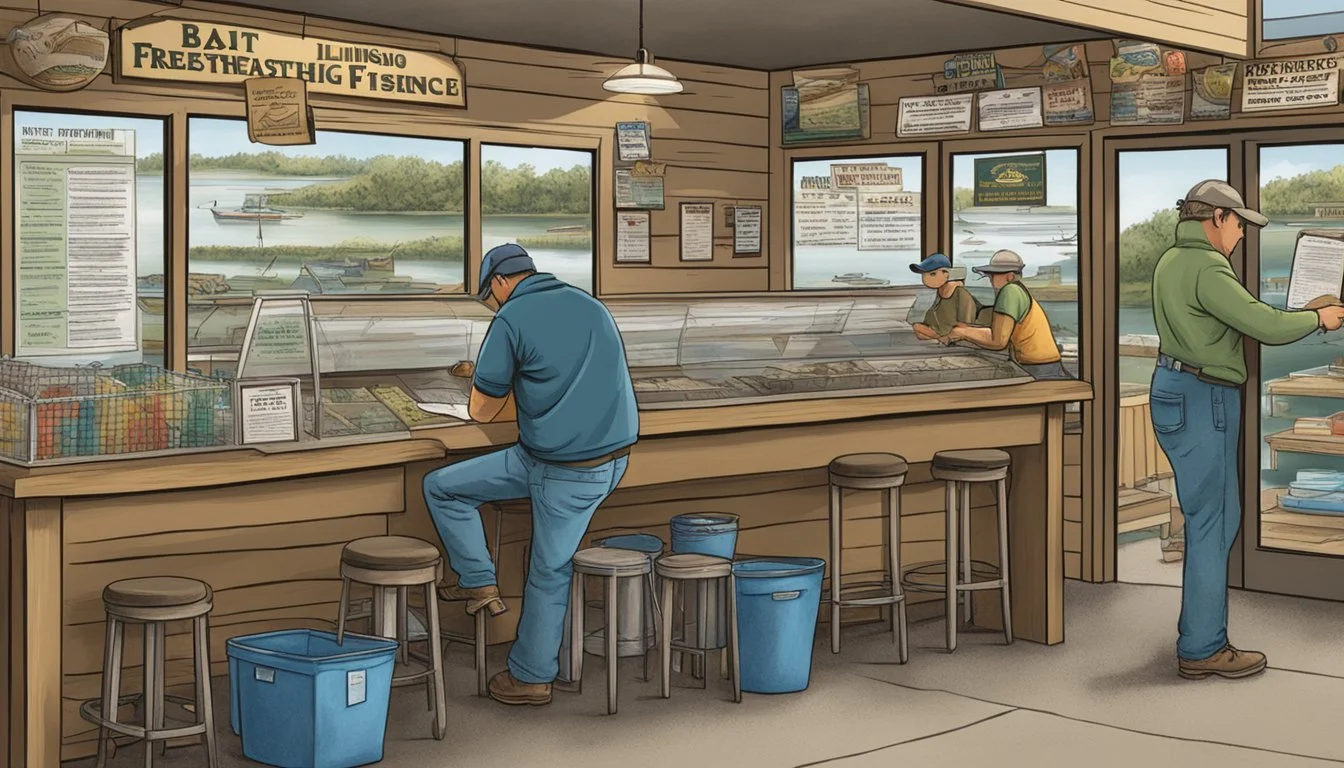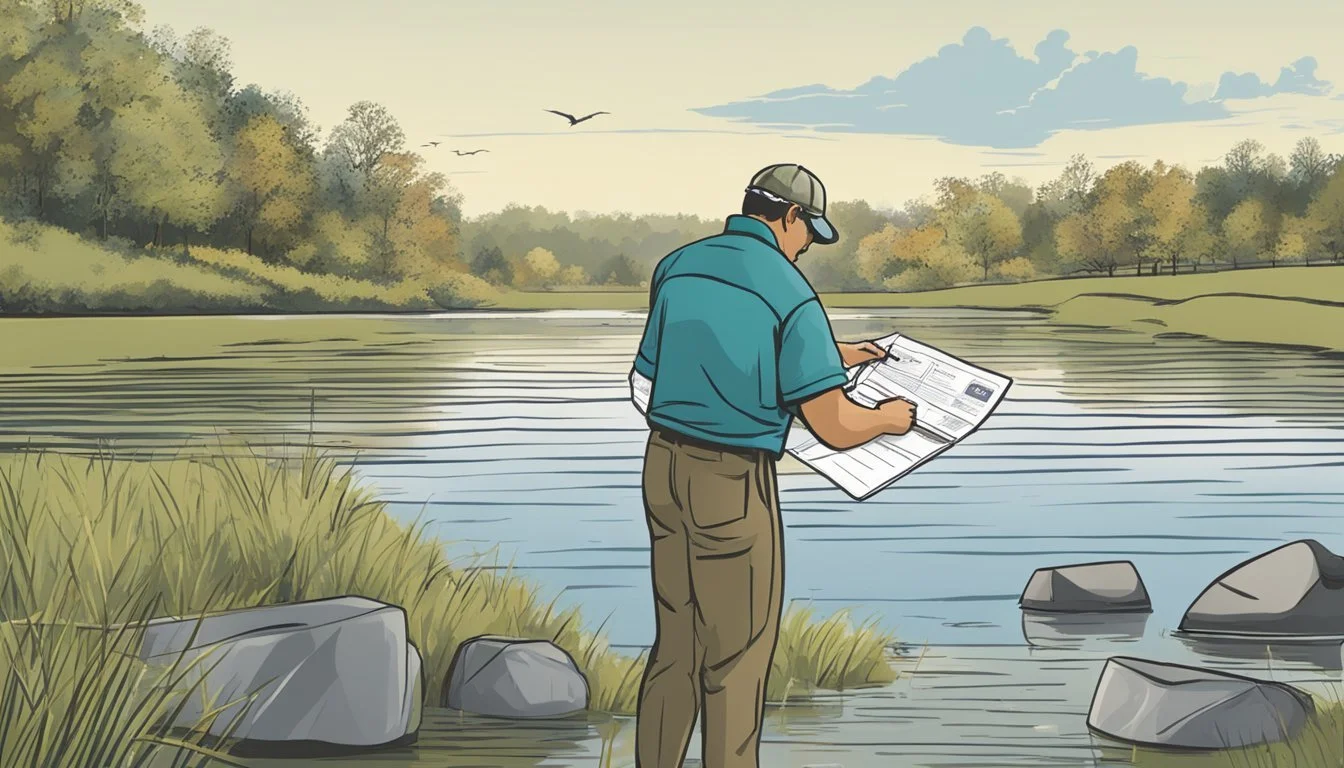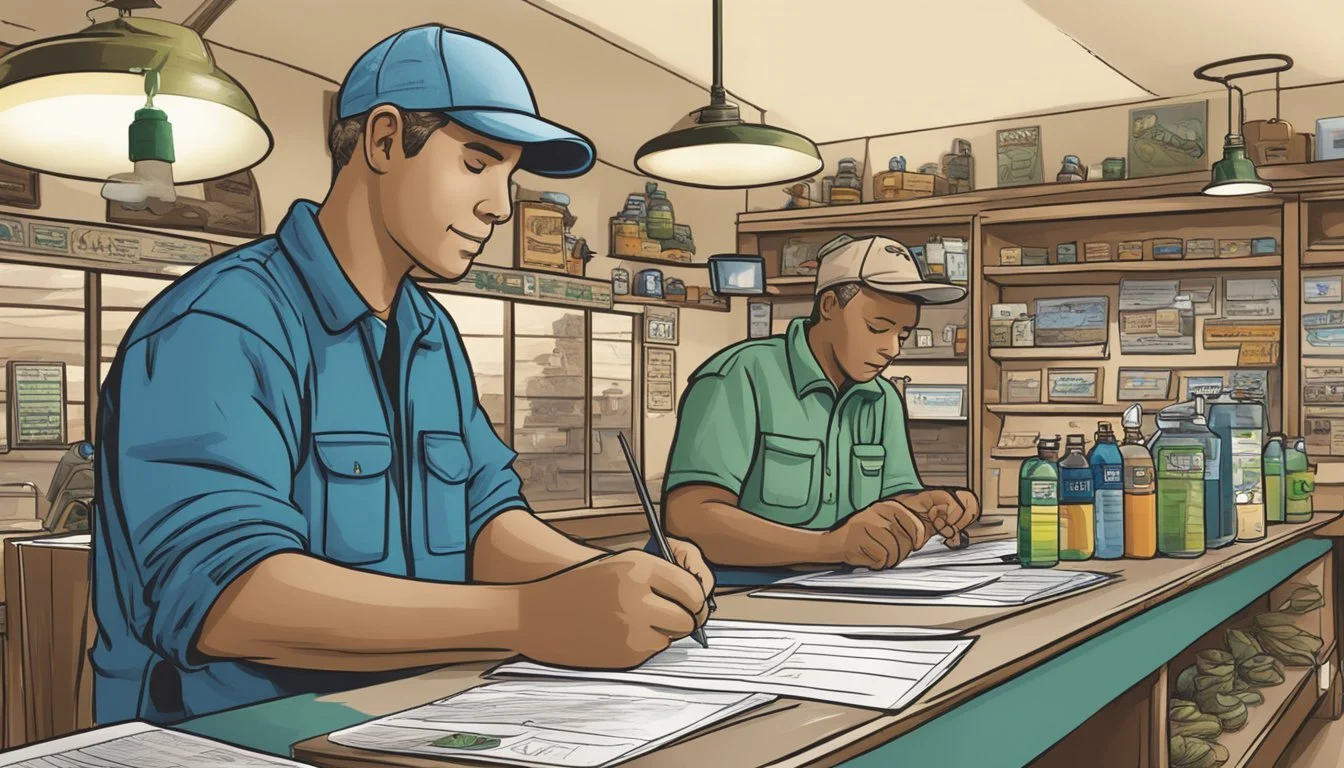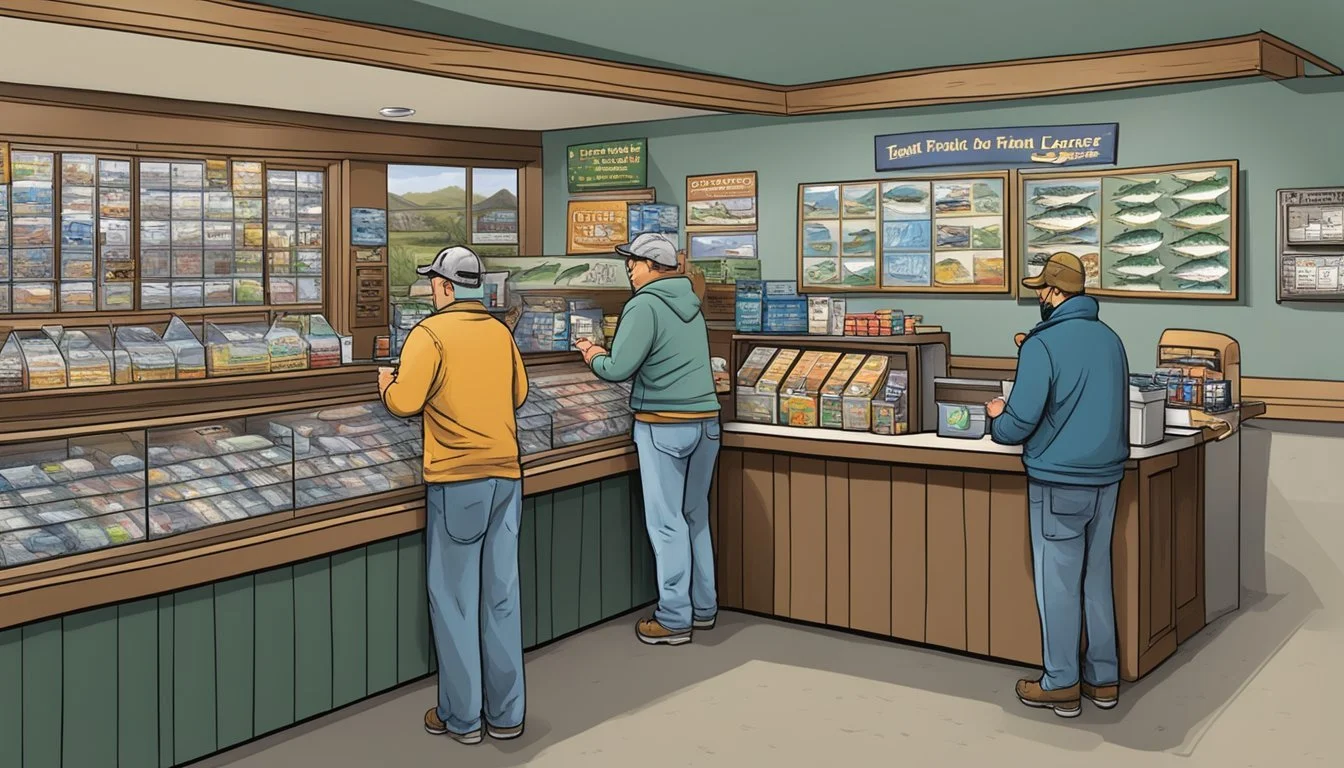How to Get an Illinois Freshwater Fishing License
A Simple Guide
Ensuring compliance with state regulations is crucial for anyone looking to engage in recreational freshwater fishing in Illinois. The state offers a variety of fishing licenses to suit different needs, with options available for both residents and non-residents. This includes annual licenses, short-term, and lifetime passes. Illinois's diverse freshwater systems provide habitats for species such as bass, muskie, crappie, and other panfish, attracting anglers from across the nation.
Before casting a line in the state's waters, obtaining an Illinois fishing license is mandatory for most individuals, although specific exemptions apply. Active duty military members from Illinois and residents assisting children under the age of 16 are among those excluded from the requirement. Licenses can be purchased online through the Illinois Department of Natural Resources website, at licensed vendors, or in some instances, via phone.
Licenses vary in cost and duration. For instance, non-residents may obtain a 24-hour sport fishing license for a nominal fee, while residents have options for a reduced-cost license if they are veterans or seniors. Understanding the available options and requirements not only helps in staying within the legal framework but also contributes to the conservation efforts that maintain the state’s aquatic ecosystems for future generations to enjoy.
Eligibility and Requirements
In Illinois, obtaining a freshwater fishing license requires individuals to meet specific age and residency criteria. Additionally, special considerations are provided for disabled individuals and veterans.
Age Requirements
Illinois residents and non-residents must have a fishing license if they are 16 years old or older. Seniors aged 65 and up may be eligible for discounted license fees.
Residency Criteria
An individual is considered a resident of Illinois if they have resided in the state for a minimum of 30 continuous days. Residents typically receive reduced rates on fishing licenses compared to non-residents.
Special Considerations for Disabled and Veterans
Disabled individuals may be exempt from requiring a fishing license if they can provide proof of a Class 2 or 2A disability, as defined by the State. Veterans, specifically those on active duty in the Armed Forces and who entered service from Illinois, may fish (What wine goes well with fish?) without a license while on leave. Additionally, individuals who are legally blind are allowed to fish without a license in Illinois.
Types of Fishing Licenses
The State of Illinois offers a variety of fishing licenses to cater to the needs of different anglers. Whether one is a resident, non-resident, a senior, or looking for a lifetime option, Illinois provides multiple license types to facilitate legal fishing activities.
Annual Licenses
Illinois residents can purchase a Resident Fishing License for an annual fee, ensuring the freedom to fish (What wine goes well with fish?) throughout the state's waters for a year. Non-Resident Sport Fishing Licenses are also available for those who are not residents of Illinois but wish to fish in the state. There are options for a 24-hour license or an annual non-resident license. For seniors, an Annual Senior Fishing License is offered at a reduced rate.
Lifetime Licenses
Illinois also provides a Lifetime Fishing License for residents who prefer not to renew their license yearly. This license remains valid for the holder's lifetime and negates the need for annual renewals. Seniors, veterans, and individuals with disabilities can avail themselves of lifetime licenses at a discounted rate.
Sportsman's Licenses
The Sportsman's License is for Illinois residents who enjoy both hunting and fishing. This combined license includes privileges for both activities, making it a convenient option for avid outdoorsmen and women.
Specialty Stamps and Tags
Additional stamps and tags are required for certain types of fishing. An Inland Trout Stamp must be purchased by anyone looking to fish for trout in inland waters. For anglers wanting to catch salmon or trout in Lake Michigan, a Lake Michigan Salmon Stamp is mandatory. It's important to note that these stamps are supplementary to the base fishing license—the possession of a regular fishing license is a prerequisite for these stamps and tags.
How to Purchase a License
When acquiring an Illinois freshwater fishing license, one can choose between several convenient options. Licenses are available online, at in-person vendors, or through paper applications sent via mail. Each method caters to the needs and preferences of different anglers.
Online
Purchasing a license online is efficient and can be done at any time. The Illinois Department of Natural Resources provides a straightforward platform where licenses can be obtained:
Go to the Illinois Department of Natural Resources website.
Follow the licensing links to the purchase page.
Select the appropriate license type and complete the transaction using a credit card.
Once the purchase is complete, the angler should print out their fishing license.
In-Person Vendors
For those who prefer buying their license face-to-face or do not have internet access, in-person vendors like Walmart are available statewide. Here is how one can purchase from a vendor:
Locate a nearby license and permit vendor, which could be a sporting goods store or a Walmart.
Visit the store, request the desired fishing license, and pay the fee.
Physical copies of the fishing license are provided immediately after purchase.
Paper Applications and Mail
Some anglers may select the traditional method of a paper application. This process involves:
Acquiring a paper application from an in-person vendor or download and print it from the Illinois Department of Natural Resources website.
Filling out the application with accurate information.
Sending the completed application along with the payment to the specified mailing address.
The fishing license will be sent via mail once the application has been processed.
Costs and Fees
The process of obtaining an Illinois freshwater fishing license involves understanding the associated fees and additional costs for various permits and stamps. There are also certain exemptions and discounts available for qualifying individuals.
License Fees
For individuals looking to fish in Illinois waters, the resident license fees are as follows:
Annual Fishing (residents): $15.00
1-day Fishing (residents): $5.50
Lifetime Fishing (residents): $435.00
Meanwhile, non-resident license fees are set at:
Annual Fishing (non-residents): $31.50
1-day Fishing (non-residents): $10.50
3-day Fishing (non-residents): $15.50
10-day Fishing (non-residents): $20.50
Additional Permits and Stamps
Certain fishing activities require additional permits and stamps, with costs as follows:
Inland Trout Stamp: $6.50 (required for trout fishing)
Salmon Stamp: $6.50 (required for salmon fishing)
Non-Resident Commercial Fishing Device Tags (Category A): $6.50
Exemptions and Discounts
There are exemptions and discounts available for specific groups. Veterans and seniors can often obtain licenses at a reduced rate, while active-duty military personnel might be eligible for certain exemptions. It's important to contact the Illinois Department of Natural Resources for the most current information on these exemptions and to verify eligibility.
Understanding License Validity
When acquiring an Illinois freshwater fishing license, it's important to be aware of the duration of licenses, their renewal deadlines, and the opportunities to fish without a license during free fishing days.
Duration of Licenses
Illinois offers various types of fishing licenses, each with its own validity period. A standard One-Year Resident Fishing License is valid until March 31 of the following year from the date of purchase. Non-resident licenses can also be obtained for short-term periods, such as a 24-hour Sport Fishing License.
Renewal Deadlines
It's crucial for anglers to note the renewal deadlines to maintain continuity in their ability to fish legally. For example, those holding a multi-year license should be aware that their license will expire every third year on March 31. Ensuring renewal by March 1 is advisable to avoid any lapse in legality.
Free Fishing Days
Illinois designates Free Fishing Days annually, during which anyone can fish without a license. These days offer a great opportunity for beginners to experience fishing or for seasoned anglers to introduce the sport to others. The specific dates vary each year, so anglers should check the current year’s schedule in advance.
Regulations and Conservation
Illinois places great importance on the conservation of its aquatic resources. Ensuring legal compliance and observing catch limits and season dates are crucial for maintaining fish populations, such as bass, walleye, and muskie, and supporting ongoing conservation efforts.
Catch Limits and Season Dates
In Illinois, carefully regulated catch limits and specified season dates help balance the needs of the environment with the experience of licensed anglers. For popular species, such as bass, walleye, and muskie, the Illinois Department of Natural Resources publishes definitive limits:
Bass: A daily limit of 6 fish with only 3 fish more than 17 inches long
Walleye: Varies by water body, generally a daily limit of 6 fish
Muskie: Minimum size limit typically 48 inches, with a daily catch limit of 1
These regulations ensure a sustainable population of key species and a high-quality fishing trip for anglers.
Conservation Efforts
Conservation efforts focus on habitat restoration and protection of native species. Illinois supports these initiatives through:
Licenses and Permits: Special licenses such as roe harvester license, roe dealer license, mussel dealer license, and interstate minnow dealer license contribute to the regulation and monitoring of specific fish populations and their habitats.
Funding: The sale of fishing licenses helps fund endangered species programs, conservation education, and other valuable environmental efforts.
Compliance with these regulations supports the broader goal of ecosystem preservation.
Legal Compliance
Legal compliance is strictly enforced to protect Illinois' waterways and fish populations. Anglers must possess the appropriate fishing license unless exempt, such as active-duty Armed Forces members from Illinois fishing on leave, or competitors in legally recognized fishing events. Failure to comply with licensing and catch limit regulations may result in hefty fines and legal consequences. Compliance ensures a fair and regulated system for all enjoying fishing in Illinois.
Additional Resources and Information
When seeking an Illinois freshwater fishing license, individuals have valuable resources at their disposal that can provide comprehensive information and support. It is important for anglers to familiarize themselves with the services offered by the Illinois Department of Natural Resources, as well as to engage with local fishing clubs and organizations that champion conservation efforts and foster a sense of community among fishing enthusiasts.
The Illinois Department of Natural Resources
The Illinois Department of Natural Resources (IDNR) is the primary authority managing licensing state-wide. It offers a variety of Illinois fishing licenses tailored to different needs, including daily passes and annual permits, with distinct options for residents and non-residents. Detailed information on license types, fees, and the purchase process is accessible through the IDNR website. Additionally, the IDNR provides education on fishing regulations and opportunities within Illinois, aimed at promoting sustainable practices across the state's rivers, lakes, and reservoirs.
Website: Here, one can find specifics on regulations and purchase licenses online.
Conservation Efforts: IDNR is active in initiatives to preserve aquatic wildlife and habitats.
Fee Fishing Areas: The site outlines locations where a separate fee is payable for access to premium fishing areas.
Local Fishing Clubs and Organizations
Local fishing clubs and organizations offer support and camaraderie for both novice and experienced anglers. Membership in a club can provide access to exclusive events, competitions, and collective knowledge on the best fishing practices and spots within Illinois.
These entities often work closely with the IDNR to further conservation efforts and ensure that the rich fishing heritage of Illinois is preserved for future generations. They may also guide Illinois residents on the nuances of obtaining the correct fishing license and understanding local fishing regulations.
Community Support: Clubs often hold meetings and provide forums for discussion.
Conservation: Many clubs are involved in local conservation projects that protect fisheries.







